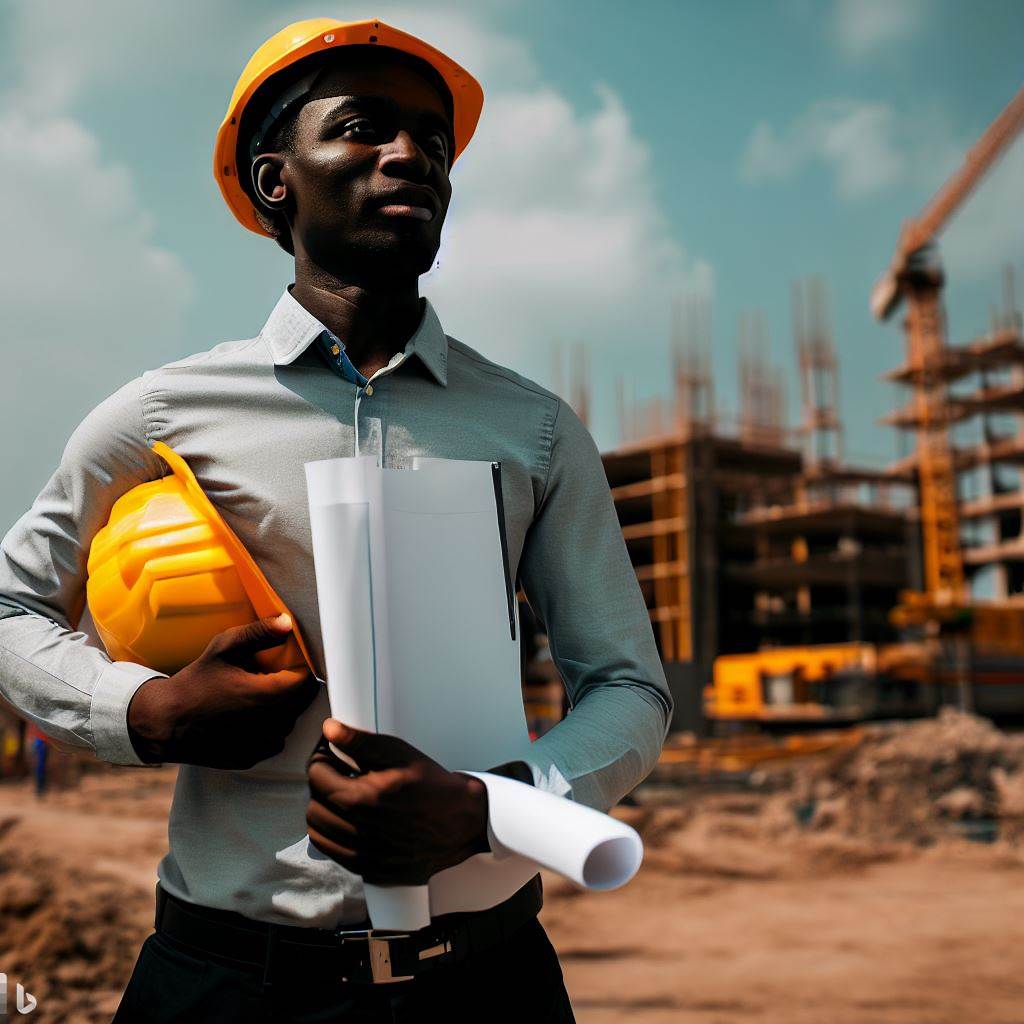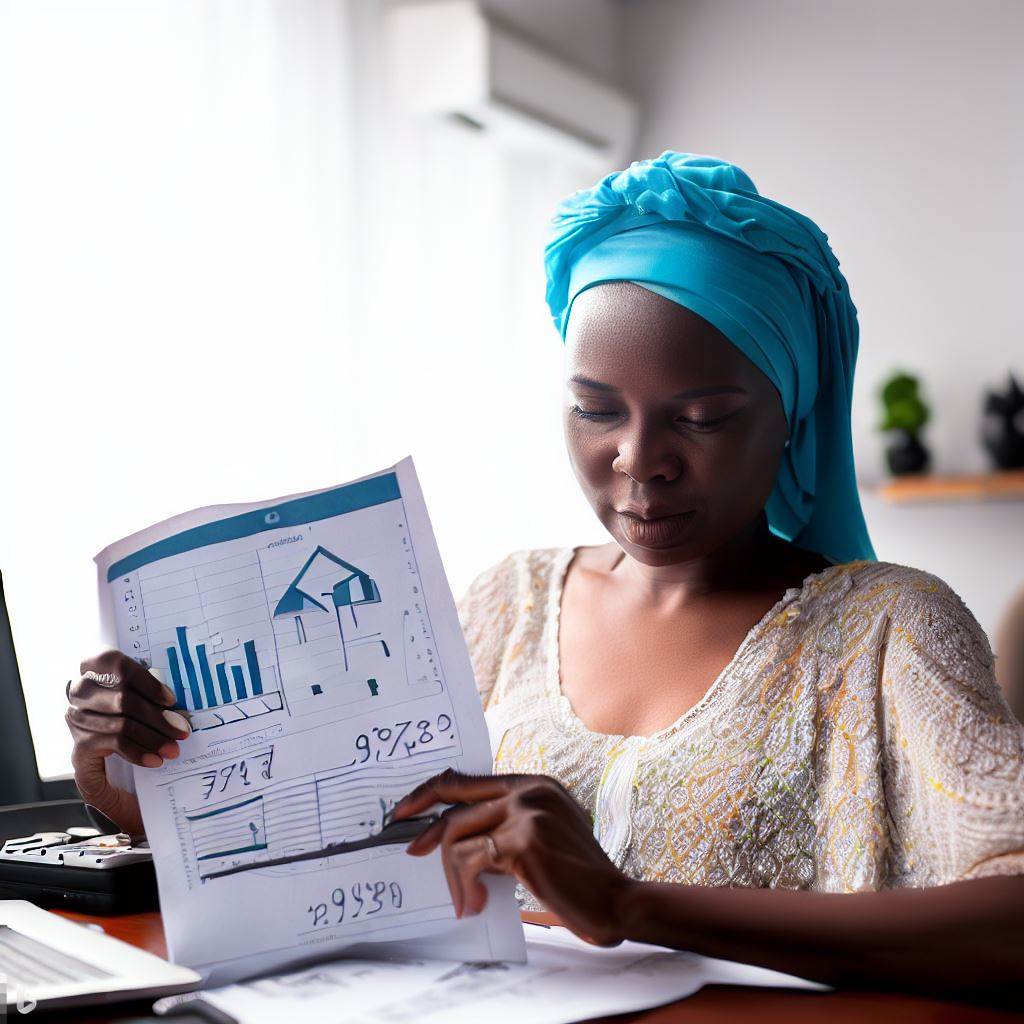Introduction
Are you torn between building or buying your dream house in Nigeria? This article presents a comprehensive cost analysis to help you make an informed decision.
The Nigerian housing market is rapidly evolving, and housing is a fundamental need. Understanding the financial implications of building versus buying is crucial for prospective homeowners.
This analysis sheds light on factors like construction costs, property prices, maintenance expenses, and long-term investment potential.
With soaring property prices and varying construction rates, knowing which option aligns better with your financial capabilities and preferences is paramount.
The findings will empower you to navigate the complex housing market, assisting you in making a prudent and well-informed choice that fits your needs and aspirations.
Whether you’re a first-time homebuyer or planning to upgrade, this cost analysis will be your essential guide in securing your ideal home in Nigeria.
Pros and Cons of Building a House
Advantages of building a house
- Customization and flexibility in design: When building a house, you have the freedom to design your dream home according to your preferences and needs.
From the layout to the finishing touches, everything can be customized to reflect your unique style. - Opportunities to use eco-friendly materials: Building a house gives you the chance to incorporate environmentally friendly materials and technology.
You can choose energy-efficient appliances, install solar panels, or use sustainable building materials to reduce your carbon footprint. - Ability to control the quality of construction: By building your own house, you have ultimate control over the quality of construction.
You can handpick the contractors, supervise the work closely, and ensure that the materials used are of superior quality.
Disadvantages of building a house
- Time-consuming and requires extensive planning: Building a house is a time-consuming process that demands thorough planning.
You need to consider permits, design choices, sourcing materials, and managing construction timelines, which can be overwhelming. - Possible cost overruns due to unforeseen circumstances: One major drawback of building a house is the potential for cost overruns.
Unforeseen circumstances such as changes in material costs, labor shortages, or unexpected structural issues may increase the overall expenses. - Need to coordinate with multiple contractors and laborers: Building a house involves coordinating with multiple contractors and laborers, such as architects, engineers, plumbers, and electricians.
Managing different schedules and ensuring smooth communication can be challenging and time-consuming.
Read: Government Policies Affecting Home Ownership in Nigeria
Building Vs Buying a House in Nigeria: A Cost Analysis
Building or buying a house is a significant decision that requires careful consideration, especially in Nigeria where real estate prices can be high. Both options have their own advantages and disadvantages.
In this section, we will explore the pros and cons of building a house.
Advantages of Building a House
One of the major advantages of building a house is the customization and flexibility it provides in design.
Unlike buying a pre-existing house, you have the freedom to create a home that perfectly suits your taste and lifestyle.
From the layout to the smallest details, you have complete control over the design process.
Building a house also presents opportunities to use eco-friendly materials and technology. With growing concerns about climate change, constructing an environmentally conscious home can be a fulfilling endeavor.
You can incorporate energy-efficient appliances, install solar panels, or choose sustainable building materials that reduce your impact on the environment.
Additionally, building your own house allows you to control the quality of construction. You can carefully select contractors and supervise every step of the process to ensure that the workmanship meets your standards.
Your Personalized Financial Plan
Get expert financial advice tailored exclusively to your goals. Receive a custom roadmap in just 1-3 business days.
Get StartedThis level of control provides peace of mind and ensures that your investment is built to last.
Disadvantages of Building a House
On the flip side, building a house comes with its own set of challenges. It is a time-consuming process that requires extensive planning and organization.
From obtaining permits and approvals to making design choices, the planning stage can be overwhelming. You need to factor in every detail, which can be a daunting task.
Another disadvantage is the possibility of cost overruns due to unforeseen circumstances. Construction projects are susceptible to unexpected expenses such as changes in material prices, labor shortages, or structural issues.
Budgeting for these uncertainties can be difficult, and it is crucial to have a contingency plan in place.
Furthermore, building a house involves coordinating with multiple contractors and laborers. You need to manage different schedules, ensure effective communication, and oversee the work of various professionals.
This requires considerable time and effort, as well as excellent project management skills.
In essence, building a house offers the freedom to customize and design your dream home, use eco-friendly materials, and control the quality of construction.
However, it requires extensive planning, may encounter cost overruns, and demands coordination with multiple contractors.
Consider these pros and cons before making a decision that aligns with your goals and resources.
Read: Understanding Land Ownership Laws in Nigeria for Homeowners
Pros and Cons of Buying a House
Advantages of buying a house
- Immediate availability for occupation: When you buy a house, you can move in right away without having to wait for construction or renovations.
- Potential to negotiate a lower purchase price: Buying a house gives you the opportunity to negotiate the price with the seller, potentially saving you money.
- Established infrastructure and amenities in the neighborhood: Many established neighborhoods have a well-developed infrastructure with schools, shopping centers, parks, and other amenities.
Disadvantages of buying a house
- Limited customization options: When buying a house, you may have limited options to customize the property according to your preferences and needs.
- Possible hidden defects or maintenance issues: There may be hidden defects or maintenance issues in a house that can be costly to repair, especially if they are not identified during the inspection.
- Higher upfront financial commitment: Buying a house requires a significant financial commitment, including the down payment, closing costs, and potential mortgage payments.
When it comes to buying a house in Nigeria, there are advantages and disadvantages to consider. Buying offers immediate availability for occupation, unlike building, which takes time.
Negotiating with sellers can lead to better deals, resulting in savings.
Buying in an established neighborhood means access to developed amenities like schools and parks.
Unlock a Debt-Free Future with Our Unique Strategies
Imagine a life unburdened by debt—a reality we help you visualize and achieve. We offer personalized strategies tailored to your unique situation, guiding you step-by-step toward financial freedom.
Start TodayHowever, there are downsides. Limited customization options mean accepting the house’s current design, making it difficult to meet specific preferences.
Hidden defects or maintenance issues may go unnoticed until after the purchase, leading to costly repairs. The higher upfront financial commitment, including down payments and closing costs, can be challenging for some.
Overall, buying a house in Nigeria has both pros and cons. Immediate occupancy and potential negotiation benefits are appealing, along with well-developed infrastructure.
On the other hand, limited customization, possible hidden defects, and higher upfront costs should be considered.
Make an informed decision by carefully weighing these factors when choosing between buying and building a house in Nigeria.
Read: Affordable Housing in Nigeria: Myth or Reality?
Cost Analysis of Building a House
When considering whether to build or buy a house in Nigeria, analyzing the costs involved is essential. Building a house in Nigeria involves several cost elements that need to be taken into account.
This section will provide a comprehensive cost analysis of building a house, outlining the various expenses involved.
Breakdown of construction costs in Nigeria
- Land acquisition and site preparation expenses: Before starting construction, the cost of acquiring land and preparing the site should be considered.
This includes purchasing the land, obtaining necessary permits, and clearing the site. - Material and labor costs: Materials such as cement, bricks, roofing sheets, plumbing fixtures, and electrical fittings need to be procured.
Additionally, labor costs for skilled workers, such as masons, carpenters, electricians, and plumbers, must be factored in. - Architectural and engineering fees: Hiring professionals to design and develop architectural plans and engineering drawings is essential.
These fees include the cost of hiring architects, structural engineers, and other professionals involved in the house’s design and construction.
Considerations for cost savings during construction
- Alternative construction methods and materials: Exploring alternative construction methods and materials can significantly impact cost savings.
For example, using interlocking blocks instead of traditional bricks or opting for energy-efficient construction techniques can reduce expenses. - Identifying reputable contractors and suppliers: It is crucial to select reliable contractors and suppliers to avoid delays, unnecessary expenses, or subpar construction quality.
Conducting thorough research and seeking recommendations can help in finding trustworthy professionals. - Efficient project management and budget control: Effective project management techniques, such as regular monitoring, timely decision-making, and proper budget allocation, can help control costs.
It is essential to closely supervise the construction progress to prevent any budget overruns.
In general, building a house in Nigeria involves various cost elements that need to be carefully considered.
Understanding the breakdown of construction costs and exploring cost-saving measures can help individuals make informed decisions about building their dream home.
By analyzing these factors and making smart choices, individuals can ensure a cost-effective and successful construction project.
Read: The Pros and Cons of Home Ownership in Nigeria

Cost Analysis of Buying a House
When it comes to buying a house in Nigeria, there are several factors that can significantly impact the overall cost. It’s crucial to carefully analyze these factors to make an informed decision.
Factors affecting house prices in Nigeria
- Location and proximity to essential services: The location of a house plays a significant role in determining its price.
Houses in prime locations or areas near essential services such as schools, hospitals, and transportation hubs tend to be more expensive. - Property size and market demand: The size of the property also affects its price. Larger houses and plots of land generally have higher price tags.
Additionally, market demand can drive up prices, especially in popular or sought-after areas. - Age and condition of the house: The age and condition of a house can impact its value. Newer properties or those in excellent condition may have higher prices compared to older or poorly maintained houses.
Additional costs to consider when purchasing a house
- Legal and registration fees: Buying a house involves legal processes, including fees for legal documentation and property registration.
These costs can vary based on the property’s value and location. - Property valuation and inspection expenses: Before purchasing a house, it’s crucial to assess its value and condition through property valuations and inspections.
These services come with their respective fees that need to be considered. - Potential renovation or remodeling costs: Buyers should consider the possibility of additional expenses for renovations or remodeling.
The cost of making necessary changes to the house to suit personal preferences or address maintenance issues should be factored into the overall budget.
By considering these factors and costs, potential house buyers can make a comprehensive cost analysis and have a clearer understanding of the financial implications of purchasing a house in Nigeria.
Unlock Untapped Nigerian Wealth with Our Expert Advice
Imagine accessing investment opportunities others overlook—stocks, bonds, real estate, small businesses tailored to you. We offer personalized advice you won't find elsewhere, guiding you to financial success.
Unlock WealthIt’s important to take the time to evaluate options and make an informed decision based on individual circumstances and preferences.
Conclusion
Summary of the main points discussed
In this article, we have examined the cost analysis of building versus buying a house in Nigeria. We discussed the factors to consider, such as land prices, construction costs, and market trends.
Additionally, we explored the advantages and disadvantages of each option.
Encouragement to weigh personal preferences and financial capabilities
It is essential for individuals to carefully evaluate their personal preferences and financial capabilities when deciding whether to build or buy a house.
Assessing factors such as the level of customization desired, time constraints, and available budget will help make an informed decision.
Final recommendation based on the cost analysis and individual circumstances
After reviewing the cost analysis and considering individual circumstances, it is recommended that individuals weigh the pros and cons of both options.
Building a house offers the opportunity for customization but can be time-consuming and costly.
On the other hand, buying a house provides convenience but may lack some desired features. Ultimately, the choice should be based on personal preferences, financial capabilities, and long-term goals.




